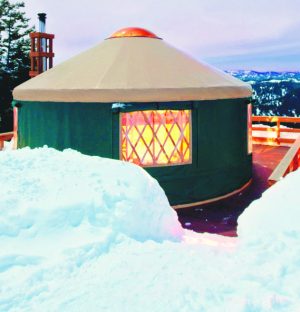September 24, 2003 – Olympic bronze medallist Deidra Dionne let out a sniffly sigh of relief when she heard the news Wednesday. Dionne, a freestyle ski aerialist who is suffering from a cold, was ready to toss her tissues when she found out athletes would not be disqualified from the Olympics if they pop a common cold tablet or take too much caffeine, under a new proposed list of banned substances.
“I can't sleep when I have a cold and when I have to compete the next day the simplest thing feels impossible,” said the 21-year-old from Red Deer, Alberta. Having a cold could have cost her dearly at the 2002 Salt Lake Games. One week before her bronze medal performance, she got sick during a World Cup in Whistler, B.C.
“I had a cold and could barely get up in the morning. I finished 12th or 13th. It was awful.” Dionne can't remember the last time she was able to take cold medication. “I was just complaining to my mom a couple days ago about this. I can't take anything . . . because of random drug testing. I can't afford to get sick.”
The decision to omit caffeine, pseudoephedrine and another minor stimulant, phenylpropanolamine, from the list would prevent cases of athletes being disqualified and stripped of medals for what some consider innocuous reasons.
Previously, a urine sample showing a concentration of caffeine greater than 12 micrograms per millilitre was considered a positive test. For some athletes, such as Canadian rower Silken Laumann, the news comes too late. At the 1995 Pan American Games, Laumann tested positive after taking over-the-counter Benadryl. It cost her and her quad-sculls teammates their gold medals.
“I think it'll be a slap in the face for those athletes if they find out now it's OK to use those substances,” said speedskater James Monson.
Not all Olympians agree with the more relaxed global list, though. “All I can say is that this comes as a pretty big shock, because I always thought that taking high levels of caffeine and Sudafed was something you shouldn't do as an amateur athlete. The Olympics are supposed to be about doing the best with your body without help from anything else,” said Kelly Bechard, a 25-year-old from Calgary on the national women's hockey team. “If you've ever had a couple of cups of coffee you already know how much more awake and full of energy you get.”
Monson, a 28-year-old long-track speedskater from Calgary on the national team, already has a cup of coffee most mornings, and has never had a problem with the banned list.
“I'm pretty sure that there's some performance-enhancing effects with pseudoephedrine, because it opens up your sinuses and helps you breathe better,” said Monson. “At least now if I do have a cold or something during a competition, I won't have to worry about taking some cold medication. I'm not going to start taking caffeine pills now though. I hope people don't start abusing this.”
The proposed global list, however, is by no means a radical departure from the old one. A positive test for marijuana would still result in a drug penalty. So would the medication at the centre of American sprinter Kelli White's doping scandal.
The new list was made by the World Anti-Doping Agency, following more than two years of research, analysis and debate. Experts now have drawn up an all-encompassing list of prohibited steroids, stimulants, blood-boosters, narcotics and other drugs.
Among the key recommendations: Caffeine and pseudoephedrine, an ingredient of the cold remedy Sudafed, are removed from the banned category. Modafinil, which could cost White her two world championship gold medals, is specifically named for the first time among the banned stimulants. The decisions were disclosed to The Associated Press by Prof. Arne Ljungqvist, the Swedish anti-doping official who heads the anti-doping agency's medical research committee. “We must adjust our list to modern thinking and to changes of attitude and changes of knowledge,” he said.
While common cold tablets and caffeine would not affect performance in some sports, Kyle Connelly, a luge coach in Calgary and former Olympian, warned that's not always the case. “Caffeine or cold medication would probably help an athlete in luge. There's a very explosive start, then you need to relax down the track and I think cold pills would help your muscles loosen and relax,” said Connelly, 23.
Canada's nordic skiers, known for their enthusiastic anti-doping efforts since Canmore's Beckie Scott had to settle for a bronze behind two Russian skiers proven to be using steroids, were surprised by the proposed list. “I guess they're going to focus on EPO (equipoise, an anabolic steroid) and blood-doping now. It surprises me that caffeine pills will be legal to take, because they can help you in a race,” said Sara Renner, a 27-year-old nordic skiing Olympian from Canmore, during a break from the national team's high altitude training camp in Park City, Utah.
The list must still be approved by the doping agency's executive committee, which meets in Montreal next Monday and Tuesday. If ratified, it will go into effect Jan. 1 and apply to all sports and all countries covered by the anti-doping agency's global anti-doping code. The list will be in force for next year's Summer Olympics in Athens.






![National camp action [P]...](https://skitrax.com/wp-content/uploads/2019/08/Duluth-4-2019-08-08-at-10.46.51-AM-300x246.png)
![Matt Liebsch on the CXC Elite Team [P] CXC...](https://skitrax.com/wp-content/uploads/2019/08/Matt-Liebsch-CXC.2-525x700.4-300x267.jpg)
![Dan LaBlanc [P]...](https://skitrax.com/wp-content/uploads/2019/08/Dan-LaBlanc-img_1855.3.jpg)
